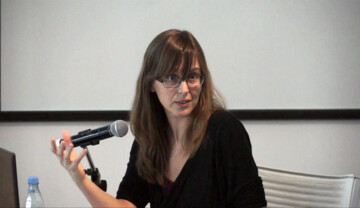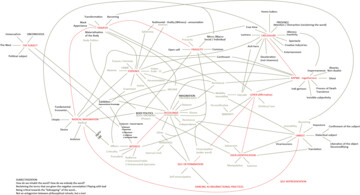The loser is the other side of the story in the neoliberal subjectivity, the other side of the gold medal within the all-encompassing race of personal capitalization. The loser is one of the possible outcomes in the constant compulsion to organize one’s life as an enterprise where the main commodity at sale is oneself. In the ongoing contest of the market economy of the self, the loser is she or he who didn’t win, who could not, who gave up, who got exhausted, who became depressed, who found him or herself alone… he or she who lost.
His or her fate has to do with an individual failure: s/he did not play her/his cards well, did not make the right choices, the right investments, the right moves. S/he was personally unable to conform to the social norm of success and regular happiness and thus, deserves our pity, but not much more: in the neoliberal world of equality of opportunity, we are all responsible and in control of our own destiny. Our future is entirely in our hands, it depends on our individual efforts, our talent, our insight.
However, neither the failure nor the victory will be definitive: the wheel of fortune goes on and on. Both the winner and the loser are thus unstable positions —there is always a chance of falling, an opportunity of picking oneself up again and getting back into the game. In the psyche of the entrepreneur of him/herself, the loser is therefore the Other who the winner needs to foreclose, so as to keep playing and enjoying the game —the ghost who haunts his/her nightmares, who reminds her/him that s/he can fall from grace, the one who invokes the fragility of her/his own success. Both a spur and a source of fear and guilt, the loser is the specter that the winner has to exorcise time and again in the everyday battle to keep oneself in the game.
Several means are deployed in order to accomplish this exorcism: coaching techniques, self-help books, pharmacology and frenzied consumption come to the aid of the entrepreneur of him/herself, picking up the baton from the old Fordist institutions which no longer offer support, recognition or protection to individuals who are all too lonely in an increasingly complex and risk-ridden world.
In order to break with such a dreadful alternative, to eliminate the loser/winner dyad, a courageous twofold move is required —on the one hand, becoming anyone, enjoying the subtle liberation of not being anyone in particular; on the other hand, narrating oneself in first person plural, caring for the ecosystem one is embedded in, linking the care of the self to the care of the other, as two sides of the same coin.




